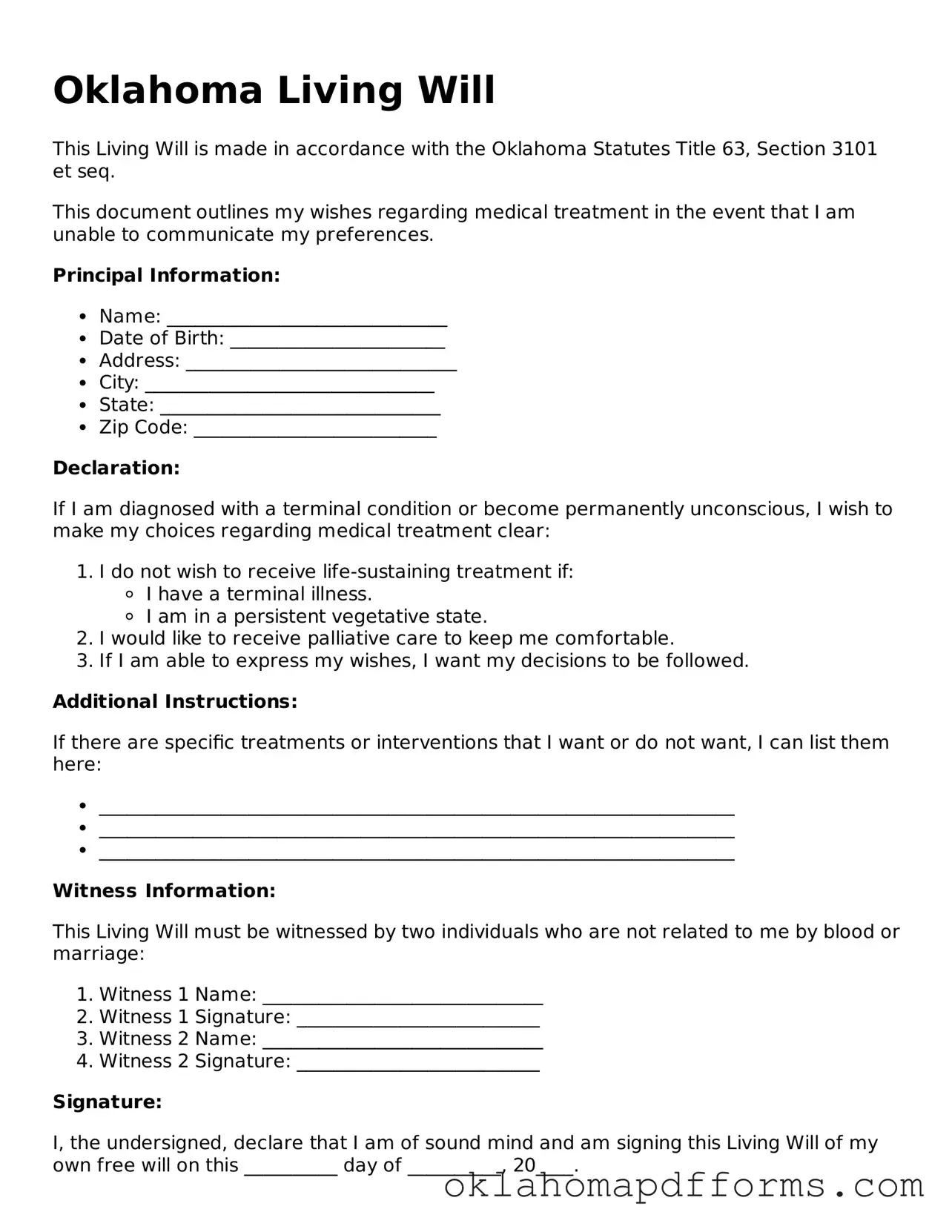What is a Living Will in Oklahoma?
A Living Will is a legal document that allows you to express your wishes regarding medical treatment in the event that you become unable to communicate those wishes yourself. It specifically addresses situations where you may be terminally ill or in a persistent vegetative state, guiding healthcare providers and loved ones on your preferences for end-of-life care.
Who can create a Living Will in Oklahoma?
In Oklahoma, any adult who is at least 18 years old and of sound mind can create a Living Will. This means you should be able to understand the nature and consequences of your decisions when you complete the document.
How do I create a Living Will in Oklahoma?
To create a Living Will, you can either use a template or consult with an attorney for assistance. The document must clearly outline your healthcare preferences and be signed in the presence of two witnesses or a notary public to ensure its validity.
What should I include in my Living Will?
Your Living Will should specify your wishes regarding life-sustaining treatments, such as resuscitation, mechanical ventilation, and feeding tubes. You may also want to address pain management and any other specific medical interventions you want or do not want.
Can I change or revoke my Living Will?
Yes, you can change or revoke your Living Will at any time as long as you are mentally competent. To revoke it, simply destroy the document and inform your healthcare providers and family members of your decision. Creating a new Living Will will also revoke any previous versions.
Do I need a lawyer to create a Living Will in Oklahoma?
While it is not required to have a lawyer to create a Living Will, consulting with one can help ensure that your document meets all legal requirements and accurately reflects your wishes. This can be especially helpful if your situation is complex.
What happens if I do not have a Living Will?
If you do not have a Living Will, your family members or healthcare providers may have to make decisions about your medical care without knowing your preferences. This can lead to confusion and potential conflict among loved ones during a difficult time.
Is a Living Will the same as a Durable Power of Attorney for Healthcare?
No, a Living Will and a Durable Power of Attorney for Healthcare are different documents. A Living Will outlines your wishes regarding medical treatment, while a Durable Power of Attorney designates someone to make healthcare decisions on your behalf if you are unable to do so.
Where should I keep my Living Will?
Keep your Living Will in a safe but accessible place. Inform your family members and healthcare providers about its location. You may also consider providing copies to your doctor and anyone who may be involved in your healthcare decisions.
Can I use a Living Will created in another state in Oklahoma?
Generally, a Living Will created in another state may be honored in Oklahoma, but it must comply with Oklahoma's legal requirements. It’s advisable to review the document with an attorney to ensure it meets state laws and reflects your wishes accurately.

